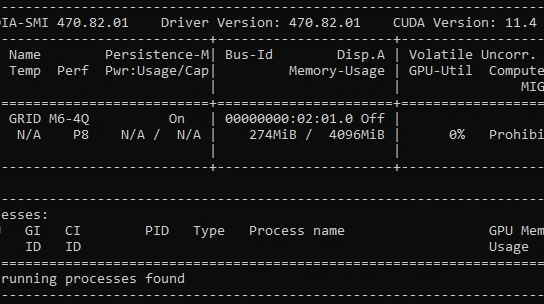In the realm of technology, artificial intelligence (AI) has made impressive strides, particularly in mathematics. For students, educators, and professionals, identifying the best math AI can make a significant difference in solving complex problems, enhancing learning, and improving productivity. This comprehensive guide explores the top AI tools designed for mathematics, their features, benefits, and how they stand out as the best math AI solutions available in 2024.

Table of Contents
What is Math AI?
Math AI refers to artificial intelligence systems specifically engineered to address mathematical tasks. These tools harness machine learning, natural language processing (NLP), and other AI methodologies to perform mathematical operations ranging from solving equations to explaining intricate concepts. The best math AI tools offer advanced functionalities that streamline mathematical problem-solving and enhance the learning experience.
How Does Math AI Work?
The functioning of best math AI tools involves sophisticated algorithms and data analysis. Here’s how these tools typically operate:
- Algorithmic Analysis: They analyze mathematical problems and select the most effective methods for solving them.
- Natural Language Processing: These tools understand and interpret mathematical queries expressed in natural language.
- Machine Learning: AI models improve over time, learning from interactions and user feedback to enhance accuracy and functionality.
- Symbolic Computation: They perform operations on algebraic expressions and calculus, handling mathematical symbols and equations with precision.
Why Use the Best Math AI?
The best math AI tools offer numerous advantages, making them invaluable for various users:
- Enhanced Learning: They provide detailed explanations and step-by-step solutions, aiding students in understanding complex mathematical concepts.
- Increased Efficiency: These tools automate time-consuming calculations and problem-solving tasks, allowing users to focus on higher-order thinking.
- Accuracy: AI tools minimize human error in mathematical operations, ensuring reliable and precise results.
- Accessibility: They make advanced mathematical resources available to users with varying levels of expertise, democratizing access to high-quality math support.
Top Math AI Tools in 2024
1. Wolfram Alpha

Wolfram Alpha stands out as one of the best math AI tools, known for its powerful computational engine and extensive database of mathematical knowledge.
Key Features:
- Comprehensive Computations: Handles a wide array of mathematical functions, including calculus, algebra, and statistics.
- Natural Language Input: Users can input mathematical queries in plain language, making it user-friendly.
- Step-by-Step Solutions: Provides detailed solutions and explanations, which is essential for learning and understanding.
- Data Visualization: Generates graphs and plots to visually represent mathematical concepts and data.
Pros:
- Extensive Database: Covers a broad spectrum of mathematical topics and functions.
- User-Friendly: Allows for natural language input and provides comprehensive explanations.
- Educational Resources: Offers valuable resources for learning and teaching mathematics.
Cons:
- Premium Features: Some advanced functionalities require a subscription to the Pro version.
2. Microsoft Math Solver

Microsoft Math Solver is another prominent contender among the best math AI tools, designed to assist users with various mathematical problems.
Key Features:
- Problem Recognition: Recognizes and solves mathematical problems from text or images, offering flexibility in input methods.
- Step-by-Step Solutions: Provides detailed solutions and explanations to aid comprehension.
- Integration with Microsoft Tools: Seamlessly integrates with Microsoft Office products, enhancing productivity.
- Interactive Graphs: Includes features for generating and analyzing graphs.
Pros:
- Versatile Input Methods: Supports both text and photo inputs, making it adaptable to different scenarios.
- Comprehensive Solutions: Offers detailed explanations for a wide range of problems.
- Free to Use: Most features are accessible at no cost, providing excellent value.
Cons:
- Limited Advanced Features: Some advanced functionalities are available only with a premium subscription.
3. Photomath

Photomath excels as a best math AI tool by using image recognition to solve mathematical problems, making it convenient and effective.
Key Features:
- Photo-Based Problem Solving: Users can solve problems by taking photos with their smartphone cameras.
- Step-by-Step Solutions: Provides detailed explanations and solution steps to facilitate learning.
- Interactive Graphs: Includes features for generating and analyzing mathematical graphs.
- Multilingual Support: Available in multiple languages, catering to a global audience.
Pros:
- Convenient Input Method: Quickly solve problems by capturing images, saving time and effort.
- Educational Support: Offers comprehensive explanations that enhance understanding.
- User-Friendly Interface: Simple and intuitive design for ease of use.
Cons:
- Limited Advanced Functionality: Primarily focuses on basic to intermediate math problems, with fewer advanced features.
4. SymboLab

SymboLab is renowned for its symbolic computation capabilities, making it a top choice for handling complex mathematical tasks.
Key Features:
- Symbolic Computation: Manages algebraic manipulation, calculus, and other advanced mathematical operations with precision.
- Equation Solving: Provides solutions for intricate equations and systems, supporting advanced problem-solving.
- Graphing Tools: Features advanced graphing and data visualization capabilities.
- Interactive Learning: Includes resources and tools for both learning and teaching advanced math concepts.
Pros:
- Advanced Functionality: Suitable for higher-level mathematics and symbolic computations.
- Comprehensive Solutions: Offers detailed solutions and learning resources.
- Educational Support: Provides valuable tools for teaching and understanding advanced mathematics.
Cons:
- Complex Interface: May be challenging for beginners due to its advanced features and interface.
5. Mathway

Mathway is a versatile AI tool for solving a broad range of mathematical problems, making it an excellent choice for various applications.
Key Features:
- Broad Range of Problems: Handles a wide variety of mathematical problems, from basic arithmetic to advanced calculus.
- Step-by-Step Solutions: Provides detailed explanations and solutions for improved understanding.
- Interactive Features: Includes graphing and data analysis tools to support diverse needs.
- Mobile and Web Access: Available on both mobile devices and desktop computers, offering flexibility and convenience.
Pros:
- Versatile Tool: Effective for a wide range of mathematical problems and scenarios.
- Detailed Explanations: Helps users understand the solution process with comprehensive explanations.
- Accessible: Available across multiple platforms for convenience.
Cons:
- Subscription Required for Full Access: Some advanced features require a paid subscription, which may be a drawback for some users.
How to Choose the Best Math AI
When selecting the best math AI tool, consider the following factors to ensure you find the right fit for your needs:
- Purpose: Determine whether you need the AI tool for educational purposes, professional work, or personal use. This will guide you in selecting a tool with the appropriate features and capabilities.
- Features: Evaluate the features that matter most to you, such as symbolic computation, step-by-step solutions, or graphing capabilities. Different tools offer varying functionalities, so choose one that aligns with your needs.
- User Experience: Look for a tool with an intuitive interface and ease of use. A user-friendly design enhances the overall experience and efficiency.
- Cost: Compare pricing plans and features to find a tool that fits within your budget. Many AI tools offer free versions or trials, allowing you to explore their capabilities before committing.
- Integration: Consider tools that integrate with other software or platforms you use, such as educational apps or productivity tools. Integration can enhance functionality and streamline your workflow.
Benefits of Using the Best Math AI

Enhanced Learning and Understanding
The best math AI tools provide step-by-step explanations and visual aids that facilitate a deeper understanding of mathematical concepts. They help users grasp complex topics and improve their problem-solving skills.
Increased Efficiency
AI tools streamline mathematical computations and problem-solving tasks, allowing users to complete their work more quickly and efficiently. This increased efficiency is particularly valuable for students and professionals with tight deadlines.
Improved Accuracy
By minimizing human error, the best math AI tools ensure accurate computations and solutions. This accuracy is crucial for both educational purposes and professional work, where precision is essential.
Accessibility and Convenience
Math AI tools make advanced mathematical resources accessible to a broader audience, including those with limited mathematical backgrounds or resources. They provide convenient solutions for various mathematical needs, from basic arithmetic to advanced calculus.
Common Misconceptions About Math AI
AI Can Replace Human Educators
While AI tools are powerful, they are not intended to replace human educators. Instead, they complement teaching by providing additional resources and support. Human educators play a vital role in guiding and mentoring students, which AI cannot replicate.
AI Writers Are Perfect
No AI tool is infallible. The best math AI tools are highly accurate, but they may occasionally produce errors or require manual verification. It’s essential to review the results and use AI tools as a supplement to human judgment.
AI is Too Expensive
Many high-quality math AI tools offer free or affordable options. It’s important to explore different tools and compare their features and pricing to find one that meets your needs and budget.
FAQs
What is the best AI tool for solving algebra problems?
For solving algebra problems, Wolfram Alpha and Microsoft Math Solver are among the best math AI tools. They provide robust capabilities for handling algebraic expressions and equations, offering detailed solutions and explanations.
Can AI tools help with calculus problems?
Yes, AI tools like Wolfram Alpha and SymboLab are particularly useful for solving calculus problems. They offer step-by-step solutions and visualizations that help users understand complex calculus concepts.
Are there free AI tools for math?
Several AI tools offer free versions or features. Microsoft Math Solver and Photomath provide valuable functionalities at no cost, though some advanced features may require a subscription.
How accurate are AI tools for math?
The accuracy of AI tools for math is generally high, but no tool is perfect. The best math AI tools are reliable, but it’s advisable to review results and verify complex solutions manually when necessary.
Can AI tools assist with learning math?
Yes, the best math AI tools offer explanations, step-by-step solutions, and educational resources that help users learn and understand mathematical concepts more effectively. They are valuable for both students and educators.
How do I choose the right math AI tool?
To choose the right math AI tool, consider factors such as the type of math problems you need to solve, the features offered, user experience, cost, and integration with other tools. Selecting a tool that aligns with your specific needs will enhance your experience.
Are AI tools for math only useful for students?
No, AI tools for math are beneficial for students, professionals, and anyone who needs to perform mathematical computations or understand complex concepts. They offer valuable support across various use cases.
Can math AI tools solve problems from different mathematical fields?
Yes, many math AI tools, including Wolfram Alpha and Mathway, can solve problems across various mathematical fields, such as algebra, calculus, statistics, and more.
Do AI tools for math require an internet connection?
Most AI tools for math, including Wolfram Alpha and Microsoft Math Solver, require an internet connection to access their computational engines and databases.
How can AI tools for math improve my efficiency?
AI tools improve efficiency by automating complex calculations, providing quick solutions, and offering detailed explanations. This allows users to complete mathematical tasks more rapidly and focus on higher-order thinking.
Conclusion
The quest for the best math AI has led to the development of innovative tools that transform mathematical problem-solving and learning. Tools like Wolfram Alpha, Microsoft Math Solver, Photomath, SymboLab, and Mathway offer diverse functionalities that cater to various needs, from basic arithmetic to advanced calculus.
By understanding the capabilities and benefits of these AI tools, you can select the one that best fits your needs and enhances your mathematical capabilities. Explore the features of these tools, and embrace the future of mathematics with the best math AI available.
Happy problem-solving!








